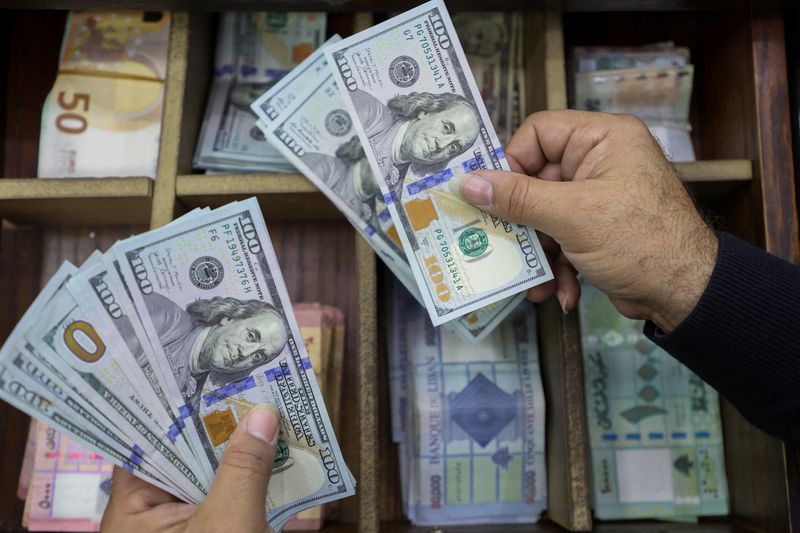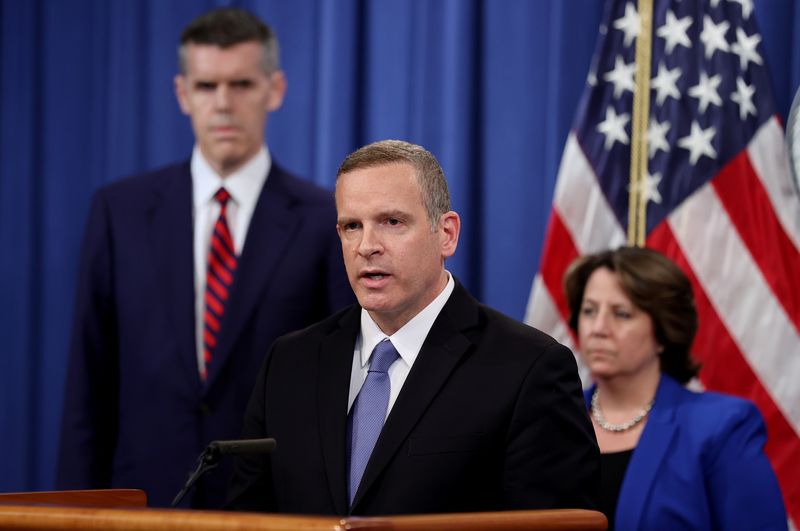Investing.com – The US dollar inched higher Tuesday, trading in tight ranges ahead of Wednesday’s eagerly-expected consumer inflation report for November, while the euro slipped marginally ahead of the latest European Central Bank policy meeting.
At 05:15 ET (10:15 GMT), the Dollar Index, which tracks the greenback against a basket of six other currencies, traded 0.2% higher to 105.995.
CPI looms large
Moves in the foreign exchange market have been limited this week, with all eyes on the release of US consumer inflation data for November on Wednesday, as this is likely to provide more insight into the Federal Reserve’s interest rate trajectory.
The report is expected to show that the headline annual number rose to 2.7% in November, above the 2.6% the prior month, while the ‘core’ figure, which excludes volatile food and energy components, is expected to come in at 3.3%, unchanged from October.
The Fed has cut interest rates by 75 basis points since September and markets are currently expecting another 25-bps cut at the December 17-18 meeting.
However, any indication that progress in returning inflation to the Fed’s 2% target has stalled would likely see markets revise expectations.
“We doubt investors will want to chase the DXY too much lower ahead of tomorrow’s US CPI number and would expect support at 105.40/60 to hold on a closing basis,” said analysts at ING, in a note.
Euro slips ahead of ECB meeting
In Europe, EUR/USD slipped 0.2% to 1.0530, after German inflation remained flat at 2.4% in November, confirming preliminary data, ahead of Thursday’s policy-setting meeting by the European Central Bank, its final policy meeting of the year.
The ECB is widely expected to agree to another 25-bps rate cut, its fourth such cut this year.
Such a reduction seems a done deal for the market, said ING, but “the press conference may open up the discussion for more cuts later, implying a dovish outcome for EUR.”
GBP/USD traded largely unchanged at 1.2748, with sterling holding up reasonably well after data showed job vacancies dried up faster in the UK than in other similar countries over the past year.
Recruitment platform Indeed’s data showed that as of Nov. 29 there were 23% fewer jobs advertised on its platform in Britain compared with a year earlier, adding to signs of a loss of momentum in the British economy in the second half of this year.
The Bank of England cut rates in November for the second time in 2024, and is seen easing monetary policy more slowly than its main rivals in 2025.
Aussie dollar near four-month low
In Asia, AUD/USD slipped 0.6% to 0.6399, hovering near a four-month low after the Reserve Bank of Australia held interest rates steady at 4.35% in its December policy meeting, citing sticky underlying inflation and a tight labor market.
USD/CNY edged higher to 7.2612, after trade data from China underwhelmed. While the country’s trade balance rose in November, both exports and imports read weaker than expected.
China has committed to implementing more proactive fiscal stimulus measures and adopting moderately looser monetary policies in 2025, and the focus is now on China’s Central Economic Work Conference, which is set to begin on Wednesday.
USD/JPY gained 0.3% to 151.59, after earlier climbing to 151.71 for the first time since Nov. 28.
This post is originally published on INVESTING.





